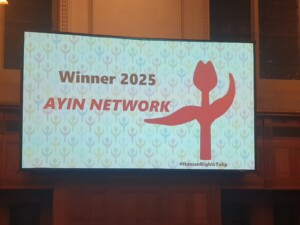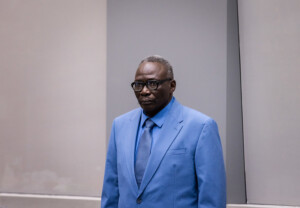UN human rights expert concerned about future of Darfur displaced
At the end of his first mission to Sudan, the UN Independent Expert on the situation of human rights in the country, Aristide Nononsi, gave a press briefing in Khartoum.
At the end of his first mission to Sudan, the UN Independent Expert on the situation of human rights in the country, Aristide Nononsi, gave a press briefing in Khartoum.
The UN human rights expert arrived in Sudan on the 13th of May. He visited Khartoum, where he spoke with a large number of government officials, and North and South Darfur, where he also spoke with a number of displaced.
“The objective of these meetings and field visits in this early part of my work on Sudan was to start identifying the technical assistance and capacity building needs of the Sudan that will enable the country to fulfil its human rights obligations,” Nononsi told reporters today.
Displaced
He reported that he visited the Abu Shouk camp in North Darfur, and the Otash and Dereig camps in South Darfur, saying that he is not only concerned about the ongoing displacement of the residents, and the humanitarian crises they are living in, but also about their future.
“There is a need for all that human rights include civil and political rights, economic, social, cultural rights, as well as the right to development. These camps receive some humanitarian assistance both from the government and from UN agencies, but it is essential to see that these actions are in response to the rights of civilians, and should be made sustainable.
“Most of the displaced I met have expressed their willingness to return to their homeland if there is an improvement of the security situation. I urge the government in Khartoum to create the necessary conditions for the return of the displaced to their ancestral homeland, and the international community to support this process as well,” he said.
“Key to peace and stability is an appropriate legal framework, institutional arrangements and democratic reforms.”
Nononsi also pointed to the state of insecurity, the Darfuris are living in, “owing to the presence of various armed elements and criminality that occur within the region”, and called upon the Sudanese government and Unamid to “fulfil their obligation in creating a safe and secure environment for these displaced communities”.
‘Put the people of Sudan’s interest first’
The human rights expert also referred to the importance to finally achieve peace in Darfur, and urged the warring parties to “put the people of Sudan’s interest first, and return to the negotiation table to resolve their outstanding differences, so as to bring peace and stability in the region.
He stressed the need for “serious commitment to effectively end the impunity for crimes committed in the region”, and said that he agreed with the General Prosecutor for the Special Court of Darfur Crimes, that he will visit him again to “discuss and advice on aspects of the important work” of the court.
Political rights and freedoms
“I have received reports of restrictions on political rights and freedoms, including the freedom of expression, assembly and association, in particular in the lead up to the April 2015 general elections,” Nononsi told the reporters in Khartoum today. He therefore called on the Sudanese authorities to “respect the political rights and freedoms as enshrined in the Interim National Constitution and allow the Sudanese people to exercise their rights freely”, and to release “all detained persons, or charge them with a recognisable offence, and prosecute them in accordance with the law”.
He also pointed to the need to ensure the protection of freedom of the press, “with particular reference being made to the use of national security laws to curb the press including closure of media houses, detention of journalists, and confiscation of newspapers and equipment”.
Rule of law
“In conclusion,” he stated, “I underscore the centrality of human rights and rule of law to peace and stability in Sudan. Key to this is an appropriate legal framework, institutional arrangements and democratic reforms. I urge of the government of Sudan to renew its efforts in these areas so as to fulfil its human rights obligations.”
Aristide Nononsi was nominated as Independent Expert on the human rights situation in Sudan and agreed to take up this role in November 2014, in accordance with Resolution 27/29 of the UN Human Rights Council. By this resolution, he is assigned to continue engaging with the Sudanese government to assess, verify and report on the human rights situation in the country, with a view to make recommendations on technical assistance and capacity-building on the subject.











 and then
and then